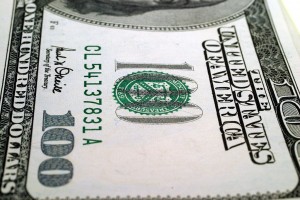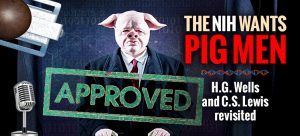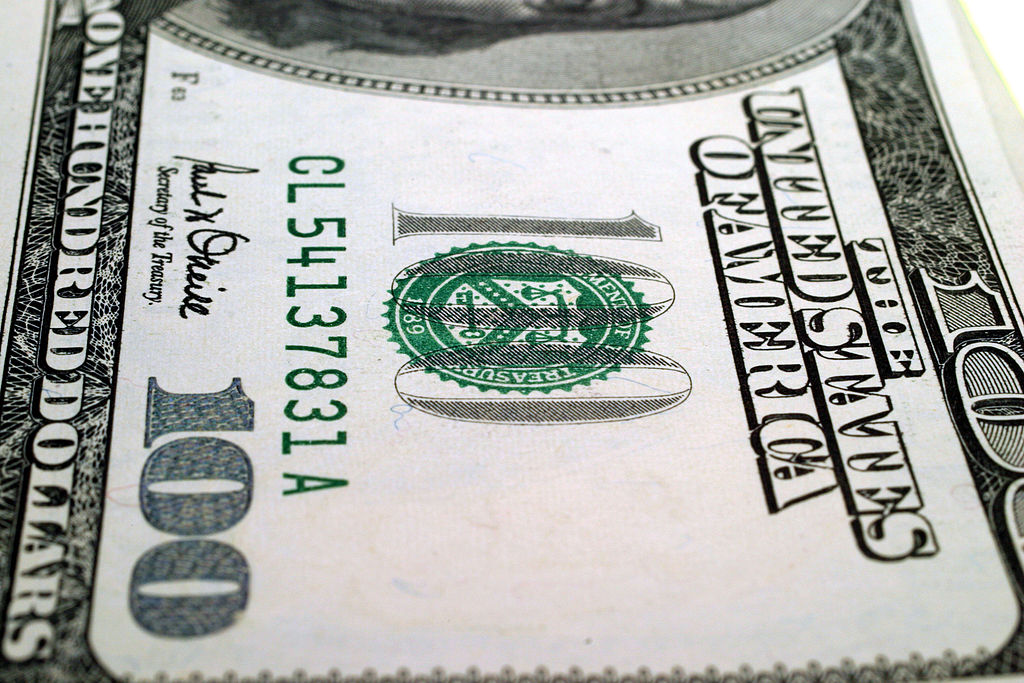 Month after month we have written about how the Arkansas Lottery budgets roughly 18% – 22% of its gross revenue for college scholarships. Some months the Arkansas Lottery gives the scholarship fund as little as 14% of the money it makes.
Month after month we have written about how the Arkansas Lottery budgets roughly 18% – 22% of its gross revenue for college scholarships. Some months the Arkansas Lottery gives the scholarship fund as little as 14% of the money it makes.
To put it bluntly, these numbers are pathetic.
When then-Lt. Gov. Bill Halter campaigned to legalize state-run lotteries in 2008, he said the Arkansas Lottery could “generate” $100,000,000 for the state’s college scholarship fund every year.
Many people–ourselves included–countered that this number likely was unrealistic, and that to achieve it, the Arkansas Lottery would have to entice people to lose hundreds of millions of dollars per year on lottery tickets.
As it turns out, Arkansans probably are buying enough lottery tickets to fund $100 million per year in scholarships, but the Arkansas Lottery is so poorly managed that it consistently falls tens of millions of dollars short of this goal every year.
How Much of Gross Revenue Goes to Scholarships?
In Fiscal Year 2016–which wrapped up at the end of last June–the Arkansas Lottery allocated 18.7% of its gross revenue for scholarships; the Lottery made $456.3 million, and gave scholarships nearly $85.4 million.
In Fiscal Year 2015 the Arkansas Lottery allocated 17.7% of its gross revenue for scholarships, which amounted to nearly $72.5 million.
To put those numbers in perspective, the typical state-run lottery allocates roughly 30% of its gross revenue for its intended purpose. Our neighbors to the south of us in Louisiana allocate 35%.
What Lottery Proponents Say
Lottery officials and their proponents have consistently told us that by budgeting a smaller percentage of gross revenue for scholarships, the Lottery has more money to spend on things like advertising and prizes, which they say in turn boosts ticket sales, which in turn boosts scholarship funding.
It’s a lot of fuzzy math that simply does not make sense when you look at the actual lottery numbers, but supposedly if the Arkansas Lottery had to allocate more than 20% or so of its gross revenue for scholarships, gross revenue would plummet and scholarship funds would plummet as well.
How the Arkansas Lottery Might Pay $100 Million for Scholarships
The one simple thing the Arkansas Lottery could do to provide millions of dollars more for college scholarships: Allocate 30% of the Lottery’s gross revenue for scholarships.
Below are the numbers for Fiscal Year 2016, which wrapped up at the end of last June.
| Gross Revenue |
Percentage Budgeted for Scholarships |
Scholarship Funding |
| $456,325,811.35 |
18.7% |
$85,384,111.23 |
The Arkansas Lottery took in more than $456 million in Fiscal Year 206, and it paid 18.7% of that money to the state’s scholarship fund.
If the Arkansas Lottery had allocated 30% of its gross revenue for scholarships instead of 18.7%, the Arkansas Lottery would have paid nearly $137 million for scholarships.
But lottery officials insist if they have to set aside 30% of their gross revenue on the front end, they won’t have as much money to spend on prizes and marketing, which will cause gross revenue to fall, and scholarship funds will fall, as well. In other words, they effectively claim that had the Arkansas Lottery been forced to pay 30% of its revenue to scholarships in Fiscal Year 2016, the Arkansas Lottery would not have made $456.3 million; it would have made far less money.
Well, let’s take that claim to task. Below is a breakdown of different examples of gross revenue figures and scholarship dollars.
| Gross Revenue |
Percentage Budgeted for Scholarships |
Scholarship Funding |
| $456,325,811.35 |
30% |
$136,897,743.41 |
| $433,509,520.78 |
30% |
$130,052,856.23 |
| $411,834,044.74 |
30% |
$123,550,213.42 |
| $391,242,342.51 |
30% |
$117,372,702.75 |
| $371,680,225.38 |
30% |
$111,504,067.61 |
| $353,096,214.11 |
30% |
$105,928,864.23 |
| $335,441,403.41 |
30% |
$100,632,421.02 |
| $318,669,333.24 |
30% |
$95,600,799.97 |
| $302,735,866.57 |
30% |
$90,820,759.97 |
| $287,599,073.25 |
30% |
$86,279,721.97 |
| $273,219,119.58 |
30% |
$81,965,735.87 |
Looking at actual numbers, if the Lottery’s gross revenue had been $100 million less in Fiscal Year 2016, the Arkansas Lottery still would have paid at least $100 million for college scholarships by allocating 30% of its gross revenue for scholarships instead of 18.7%.
Lottery proponents claim if they have to allocate 30% of their gross revenue for scholarships, gross revenue will fall. The truth is, if the Arkansas Lottery allocated 30% of gross revenue for scholarships, the Arkansas Lottery would pay more money to scholarships than it currently does–even if gross revenue fell by $168.7 million.
We have written about this before. If the Arkansas Lottery were forced by law to budget 30% of its gross revenue for scholarships no matter what, scholarship funding would increase even if ticket sales plummeted by tens of millions of dollars.
Louisiana Proves This Can Be Done
Louisiana law requires the state lottery to budget at least 35% of its gross revenue for education. That means 35 cents of every dollar the Louisiana Lottery makes automatically gets spent on education funding.
Shortly after the Arkansas Lottery first started, we wrote how the Louisiana Lottery paid roughly $30 million more for education despite making $100 million less in lottery ticket sales than Arkansas did. That trend has continued.
- In Fiscal Year 2011 the Louisiana Lottery brought in about $80 million less in gross revenue than Arkansas did, but it put roughly $42 million dollars more toward education.
- In Fiscal Year 2012 Arkansas’ gross revenue climbed to $473.6 million. It outpaced Louisiana’s lottery by $41 million in sales. Even so, the Louisiana Lottery paid out $59.4 million more for education than Arkansas did.
- In Fiscal Year 2013 Louisiana’s lottery made about $7 million more in gross lottery revenue than Arkansas did; that’s a very narrow margin. However, Louisiana paid out nearly $70 million more to the state for education funding than Arkansas did.
- In Fiscal Year 2014 Louisiana’s lottery made roughly $39.9 million than Arkansas’ lottery, but paid $89.2 million more to education than Arkansas’ lottery.
- In Fiscal Year 2015 Louisiana’s lottery made roughly $44.6 million than Arkansas’ lottery, but paid $112.3 million more to education than Arkansas’ lottery.
The numbers simply cannot be denied. When the Louisiana Lottery takes in millions of dollars less than the Arkansas Lottery, it still pays out more money for state education funds than the Arkansas Lottery does for college scholarships. When the Louisiana Lottery makes a few million dollars more than the Arkansas Lottery, it still pays out tens of millions of dollars more than Arkansas Lottery does–all because Louisiana allocates 35% of its gross revenue for education instead of 18% – 22%.
For years lottery officials have used scholarships to justify every decision they make, but we can see they are not putting scholarships first.
If Arkansas would allocate at least 30%–or even 25%–of its lottery sales for college scholarships the same way other states do, scholarship funding would actually increase–even if lottery ticket sales plummeted by tens of millions of dollars.
READ MORE
 Recently we told you about a news story that sounds like something straight out of a checkout-line tabloid: The National Institute of Health is considering using public funds for research that creates human-animal hybrids or “chimeras.”
Recently we told you about a news story that sounds like something straight out of a checkout-line tabloid: The National Institute of Health is considering using public funds for research that creates human-animal hybrids or “chimeras.”


 A new, massive
A new, massive 
 Month after month we have written about how the Arkansas Lottery budgets roughly 18% – 22% of its gross revenue for college scholarships. Some months the Arkansas Lottery gives the scholarship fund as little as 14% of the money it makes.
Month after month we have written about how the Arkansas Lottery budgets roughly 18% – 22% of its gross revenue for college scholarships. Some months the Arkansas Lottery gives the scholarship fund as little as 14% of the money it makes.